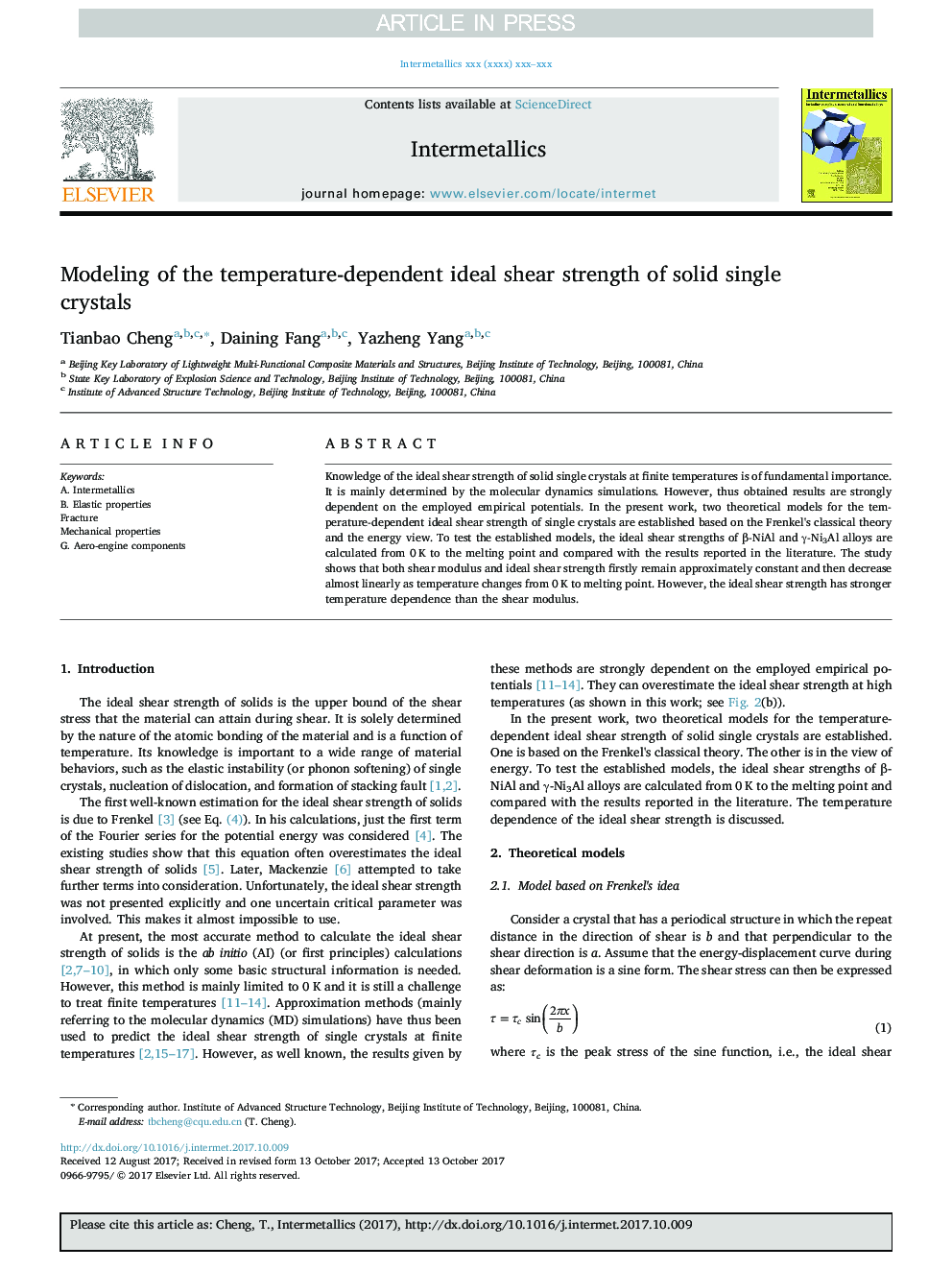| Article ID | Journal | Published Year | Pages | File Type |
|---|---|---|---|---|
| 7988434 | Intermetallics | 2018 | 4 Pages |
Abstract
Knowledge of the ideal shear strength of solid single crystals at finite temperatures is of fundamental importance. It is mainly determined by the molecular dynamics simulations. However, thus obtained results are strongly dependent on the employed empirical potentials. In the present work, two theoretical models for the temperature-dependent ideal shear strength of single crystals are established based on the Frenkel's classical theory and the energy view. To test the established models, the ideal shear strengths of β-NiAl and γ-Ni3Al alloys are calculated from 0â¯K to the melting point and compared with the results reported in the literature. The study shows that both shear modulus and ideal shear strength firstly remain approximately constant and then decrease almost linearly as temperature changes from 0â¯K to melting point. However, the ideal shear strength has stronger temperature dependence than the shear modulus.
Keywords
Related Topics
Physical Sciences and Engineering
Materials Science
Metals and Alloys
Authors
Tianbao Cheng, Daining Fang, Yazheng Yang,
